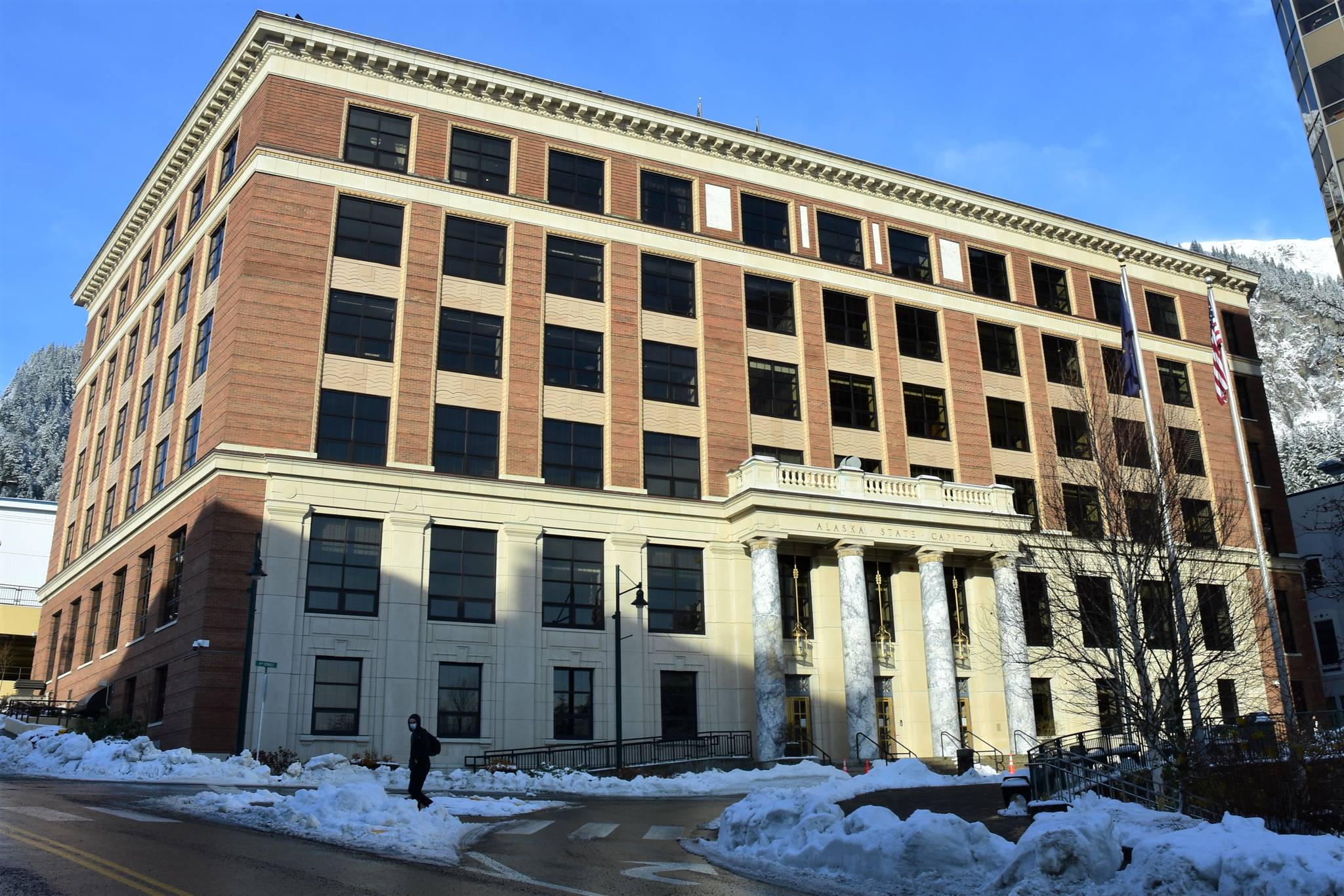With the deadline for the state’s emergency declaration looming, state lawmakers and the governor’s office are trying to find a way to extend the emergency provisions.
Doing so could mean the Alaska State Legislature has to go into special session to authorize an extension. With risk of COVID-19 spread and this year’s elections changing membership of the Legislature, it’s not yet clear how that might happen.
In an Oct. 30, letter to House Speaker Bryce Edgmon, I-Dillingham, and Senate President Cathy Giessel, R-Anchorage, Chief of Staff to Gov. Mike Dunleavy Ben Stevens asked legislative leadership to take a poll of membership on convening a special session for the purposes of extending the disaster deadline.
There is interest in extending the emergency deadline, Giessel and Edgmon wrote in a Nov. 2, response, but not enough votes in both bodies to reach the 40 votes, or two-thirds of the Legislature, necessary for lawmakers to call themselves into special session. The letter was also critical of the administration for the timing of the letter.
“There is interest in extending the emergency declaration as expressed by members over the last two weeks. However, it is clear after months of what appeared to be a lack of interest in convening the Legislature by your administration, the sudden nature of your request finds many legislators in a difficult position,” the letter said. “You can (call a special session) with a ‘stroke of your pen’ and your leadership is obviously necessary for us to reach the required vote threshold.”
[Dunleavy declares emergency over coronavirus]
The letter states the governor has the ability to limit the scope of the special session to specifically extending the emergency declaration issued in SB 241 in April.
If the governor is unwilling to use an executive order to call a special session, the letter requests the governor, “actively engage with legislators to persuade their support for the purpose of calling ourselves into special session. Otherwise, as you well know, any efforts to get to the 40 vote threshold will be futile and destined to fail from the start.”
Not only are the health conditions different from the last time the Legislature met, but some lawmakers also lost primary elections or are currently awaiting general election results. Giessel will not be returning to the Legislature after losing in the primary elections this summer. The change in makeup of the Legislature will mean a change in leadership in the Senate, and possibly in the House as well in January.
“The Governor is evaluating all options regarding a continuance of the state of emergency Alaska’s residents are facing and he will make a decision soon, Dunleavy spokesperson Jeff Turner said Wednesday in an email. “His paramount consideration is the health and safety of Alaskans, especially the most vulnerable in our communities.”
[Lawmakers, governor express interest in extending disaster declaration]
Provisions within the declaration that lawmakers would like to see extended according to the letter include granting the Chief Medical Officer authority to issue standing orders for healthcare providers related to COVID-19, ensuring first responders and healthcare workers receive workers’ compensation if they contract COVID-19 and creating an expedited path to certify out-of-state licensed professionals to help address the public health emergency.
The declaration was made by the governor in March shortly after the World Health Organization declared COVID-19 a pandemic meaning the virus had spread over a large area. That declaration was only in effect for 30 days but was extended by the Legislature in April. At the time there were no known cases in Alaska and the Legislature was still gathered in Juneau for its regular session.
How the Legislature is going to be able to convene itself, for a special session or for its regular session, is still not entirely clear. Lawmakers were called back to Juneau in May by a lawsuit filed by a Juneau man that claimed the allocation process for federal relief funds chosen by the Dunleavy administration violated the state constitution. Masks and COVID-19 screenings were required upon entering the Capitol building, something lawmakers recently said will continue until at least January.
In May the Legislature was able to conclude its work within a week before lawmakers returned home, but this time, almost all areas of the state are on high alert for COVID-19 transmission. Department of Health and Social Services guidelines caution against congregate settings, especially for extended periods of time, both of which are unavoidable were lawmakers to return to Juneau.
• Contact reporter Peter Segall at psegall@juneauempire.com. Follow him on Twitter at @SegallJnuEmpire.

